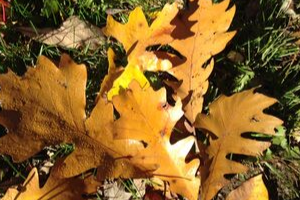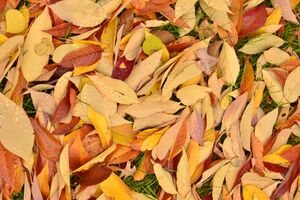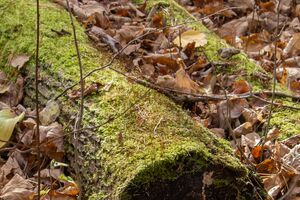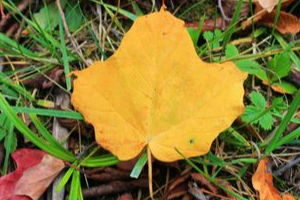
Adds nutrients to the soil
Removing fallen leaves, or leaf litter, can disrupt the natural cycle of nutrients including carbon and nitrogen, which are essential for plant growth and development. When leaves are dropped by deciduous trees during the fall season, those leaves decompose into the soil, releasing essential nutrients, which help make the soil more fertile and rich in organic matter. In urban areas that have been highly developed by humans, soils tend to lack in that natural organic matter, so leaving your leaves in the fall is one way to replenish those natural soil nutrients.
Regulates soil moisture and temperature levels
During the winter months, it is important that plant roots receive protection from those extremely cold temperatures. This can be achieved through leaf litter retention where the leaves act like a blanket, keeping everything below them slightly warmer. Additionally, leaf litter can have similar moisture retention properties as woodchip mulch. Organic matter insulates the soil and holds heat underground so that soil microbes can remain active during the coldest months of the year. It allows for moisture to slowly be released into the soil so that it doesn’t dry out. Plants that are native to Ontario are accustomed to our cooler temperatures, however; urban trees and shrubs are exposed to additional stresses, 
Animals and insects rely on leaf litter
Insect larvae, microbes and worms often reside in leaf litter where they overwinter as pupae. Toads and salamanders use leaf litter to hide and hunt. Turtles, earthworms, chipmunks and insects rely on leaf litter in the winter to shield them from the cold. Many birds use leaf litter for foraging insects on the forest floor. Removing this important source of food and shelter for local wildlife can negatively impact them. 
Ultimately, leaving your leaves has various benefits that will help your yard and its surrounding environment thrive for years to come. In an urban setting where plants are often faced with many stresses, it is important to do as much as we can to help them flourish in their newly planted environments. Leave your leaves this fall to see how they can benefit your yard!
Adriana Rezai-Stevens is the Planting and Stewardship Coordinator at LEAF.
The Backyard Tree Planting Program is supported by the City of Toronto, the Regional Municipality of York, the City of Markham, the Town of Newmarket, the Town of Ajax, Toronto Hydro and Ontario Power Generation.
